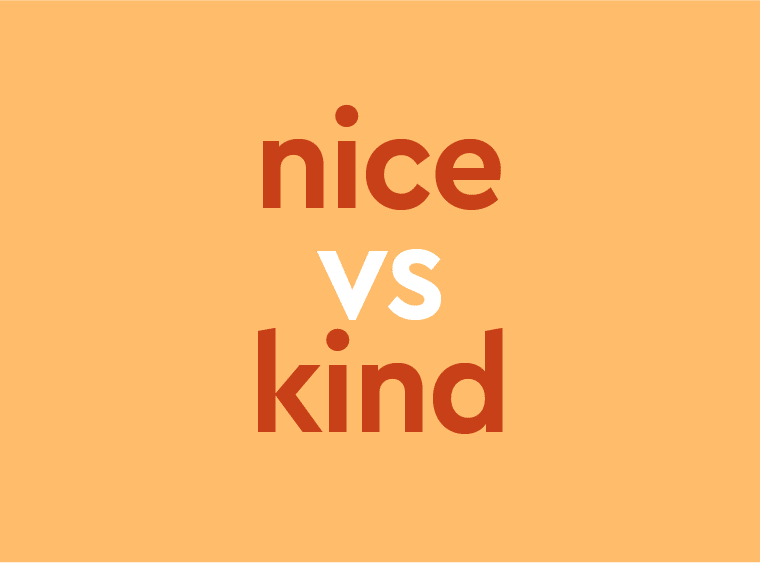Value of being kind not just nice
We all know about the unconstructive way of giving feedback at work by delivering advice in a very harsh, unreasonable, or unforgiving way. How about the opposite end of the spectrum of being nice all the time and providing very little helpful direction? Your team members deserve quality input to improve and achieve their best and simply being nice won’t cut it.
Nice
Nice feedback often comes from wanting to prevent disagreements and keep emotions safe. Even though it might have good intentions and seem harmless, in reality, it can be too unclear, causing communication problems with a high likelihood of very bad results.
This is important because clear and quality communication is a requirement for any business to do well. When team members can respectfully share their ideas and challenge them, the best ideas find their way to the surface. This helps both individuals and the organization do better. Even when feedback is tough, it helps create a culture where everyone grows and gets better instead of settling with mediocrity. Without open communication, important information can be missed, leading to confusion, not being on the same page, and weak performance.
As your relationships become stronger with your team members, always pay close attention and avoid falling into the “nice guy” trap, which can be very difficult to escape from.
Kind
Kind feedback is helpful and comes from wanting to make things better for all parties involved. It helps team members learn from mistakes and grow skills, leading to success. Kind feedback is about clarity on what needs improvement and its purpose is to strengthen each other.
Consider the friend who pointed out the leftovers from your delicious lunch stuck in your teeth. They took the initiative to help you solve a problem, even if it meant embarrassing you temporarily. Now, think about the friend who thought it wouldn’t be nice to mention anything. Their intention to be nice resulted in you having embarrassing green stuff in your teeth for the rest of the day.
Feedback that’s kind isn’t mean or rude, but it’s also not overly nice to the point where it causes miscommunication. It’s somewhere in between.
Kind feedback is about connection, clarity, leadership, and conversation. Let’s break that down further briefly.
Connection: Showing that you care about your teammates and want them to do well.
Clarity: Being prompt with feedback to avoid confusion, being specific, and providing as many details as possible.
Leadership: Having a solution with specifics ready to go prior to engaging. Pointing out the remedy in a complete and healthy fashion is a sign of strong leadership.
Conversation: Chat! This is a two-way street. Gather your teammate’s perspective, give them space to express themselves, and follow.
In today’s social climate, where terms like “cancel culture” are used to show being very judgmental and not accepting mistakes, team members might feel more scared to give feedback, especially if it’s not all positive. This means we might be more likely to give wrong feedback by being too nice, rather than being mean. So, just like we want to stop meanness and disrespect in our cultures, we also need to stop being so careful not to hurt feelings that we end up making a workplace where communication doesn’t work well.
It’s all about finding the right balance and I would love to hear from you if you have. I’m still working on it myself.
Have a nice and kind week ahead.
– Burak Sarac, Team Lead
|

